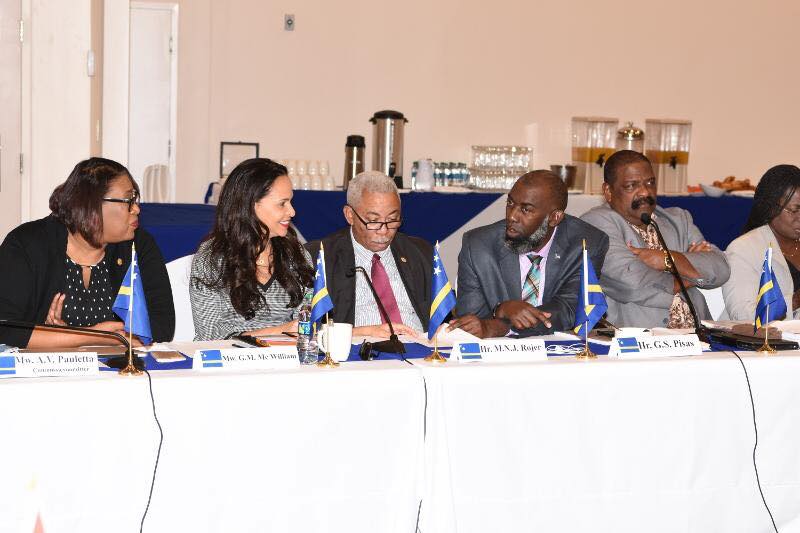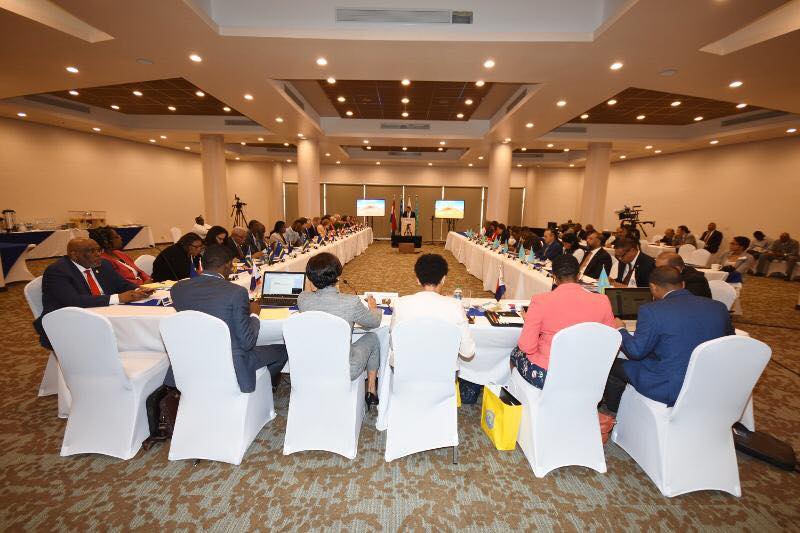Dispute regulation heats up Ipko-meeting

PHILIPSBURG – Discussions about the dispute regulation during the Inter-Parliamentary Kingdom Consultation got heated when the delegations from Curacao, Aruba and St. Maarten expressed their disappointment about the draft law State Secretary Knops has sent to the Dutch parliament and about the fact that the Dutch Ipko-delegation declined to take a position on the issue.
Especially within the Curacao-delegation there seems to be discontent. The Caribbean islands pressured their Dutch colleagues to stick to the agreements that were made in the Ipko in 2015 when all four delegations found common ground.
But VVD-parliamentarian André Bosman labeled the discontent in a reaction on Facebook as “negative nonsense.” He notes that there is a formal law proposal that requires serious treatment. “I still have to inform my faction and discuss the position first with the VVD-faction in the Second Chamber. I cannot do that at the Ipko. The same goes for all Chamber factions and for all members of parliament. It has therefore nothing to do with “not daring” but with handling the debate in a conscientious manner. That is possible when we handle the dispute regulation law in the Second Chamber.”
Reacting to another post, Bosman pointed out that Ipko is not a forum with decision-making powers. “It is possible that compromises have to be made during the handling of a law.”

MP Sarah Wescot-Williams, who chairs the Ipko-meetings, emphasized that there is no point discussing the dispute regulation any further in the Ipko and that the only way open for the islands to influence the outcome of the debate in the Second Chamber is to come up with joint amendments to the proposal submitted by State Secretary Knops.
The delegation leader of the three islands, William Millerson (Curaco), Ady Thijsen (Aruba) and Wescot-Williams did express their disappointment about the fact that the Knops-proposal does not take the Ipko-agreement from 2015 into account. The crucial element in that agreement was that an independent institute would issue binding advice on legal disputes between the kingdom countries.
A large majority in the Dutch Second Chamber passed a motion asking the government to use the Ipko-agreement as the guiding principal for a kingdom law.
The islands said that they trust that their Dutch colleagues are still behind the motion and that they will support amendments to bring the draft legislation in line with the 2015-agreement.
Chances are however that the draft law will pass as proposed by the state secretary. Ipko-delegation leader Jan Paternotte did not give anything away and limited his contribution to the discussion to an explanation about the legislative process.
The Ipko-Presidium managed to keep the meeting more or less under control with an agreement that only the delegation leaders would speak about the issue and that there would be no debate. That did not stop some members of the Curacao-delegation from making an attempt to drive their points home.
Radio host Elton Jones confirmed in a comment on the issue on Pearl FM Radio what many members of the Caribbean delegations think: they can say whatever they want but in the end, the Netherlands takes the decisions.
The Second Chamber handles the law proposal in June. The islands are able to take part in the debate through their ministers plenipotentiary, who can also table amendments.
###
Related articles:
Ipko positive about structural election observation
Ipko-agreements are detailed, yet vague
Opinion piece: “Return on investment“


























